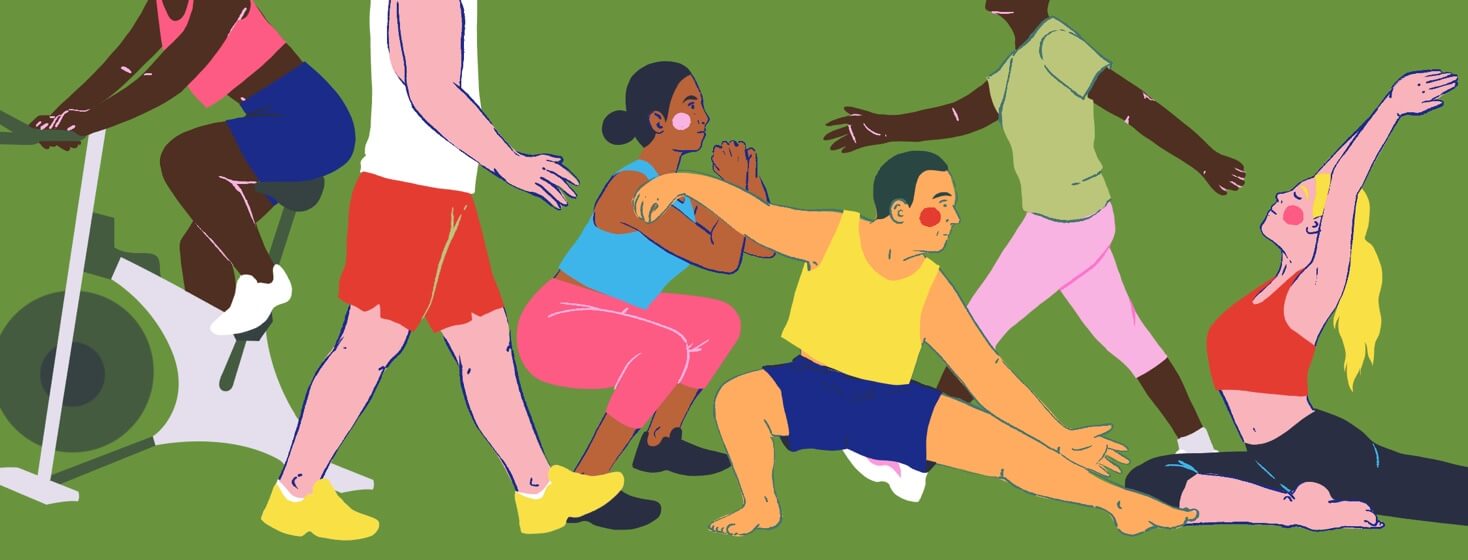Does Exercise Help RLS?
As I sit down to write this, the New Year is still fresh on my mind. And with a New Year comes resolutions. As I am not quite as young as I once was, I have learned that the best resolution is not to have resolutions at all. 80 percent of them disappear in a puff of smoke by the middle of January.1
But it is hard not to get caught up in the decision to make changes on an arbitrary date. Everything feels fresh and new again. And one of the most popular resolutions is to exercise more. So, to that end, I went for a walk this morning. Something I used to do with relentless regularity until I broke my leg. Then I lost the habit. Now I have no excuse.
What motivates me to exercise?
Exercise has so many well-known, well-researched and well-promoted benefits.2
My personal motivation is to regain a higher level of fitness so I can reduce disease risk and maintain a physically active lifestyle as I sink from middle age into whatever comes next. But a definite flow-on benefit is the positive impact exercise has on my restless legs syndrome (RLS).
What do we know about exercise and RLS?
One popularly cited 2006 study (Aukerman et al.) — a randomized controlled trial of the correlation between exercise and RLS symptoms — showed positive results. While it was a small study, it confirms my personal experience of exercising and RLS symptoms – regular moderate exercise helps.3
The study participants did aerobic and lower body strength training 3 days a week over 12 weeks. Their severity of symptoms was measured using the International RLS Study Group (IRLSSG) severity scale.3
At the end of the study, participants showed significant improvement compared to the control group. The exercise programme was conducted 3 days per week and consisted of 30-minutes on a treadmill followed by a strength training regime that included horizontal leg press, leg extension, leg curl, hip adduction, hip abduction, and seated rotary calf press. All of which was supervised by appropriate professionals.3
It leaves me heartened to realise that exercise doesn’t need to go for hours a day, 7 days a week. Three sessions a week was all it took for quantifiable improvement.
Severity scores for the control group decreased less than 8 percent over 6 weeks, whereas exercise group severity scores dropped by 39 percent during the same time period. Scores for both groups remained relatively stable from 6 to 12 weeks, with symptom improvement from baseline only evident for the exercise group.3
What does exercise look like for me?
I have personally found that stretching provides a lot of short-term relief when I am symptomatic, but I like the idea that regular exercise can reduce the severity of the onset of symptoms, thereby giving longer-term relief.
When life is running smoothly and I am struck with motivation and determination (in shockingly small supply as I age), I walk regularly and attend 2 to 3 strength training classes per week. I have done this for 10 years now and the benefits have been obvious. I don’t exercise purely for the sake of improving my RLS – but if I needed to, I would.
Exercise is a lifestyle choice
Exercise can be used in addition to other treatments and lifestyle changes – it is not a stand-alone option. Regular moderate exercise is something I can control – it is a lifestyle decision, just like removing caffeine from my diet or reducing sugar intake. The researchers of the randomized control study summed it up perfectly.
The findings of this study demonstrate that an exercise program consisting of a resistance and aerobic component was effective in improving symptoms of restless legs syndrome. No effort was made to discontinue medications that may exacerbate or improve RLS symptoms. As such, these findings support the use of exercise as an adjunct to treatment of RLS.3
Do you find that exercise has an effect on your RLS? What type of exercise do you do? Tell us more in the comments below!

Join the conversation